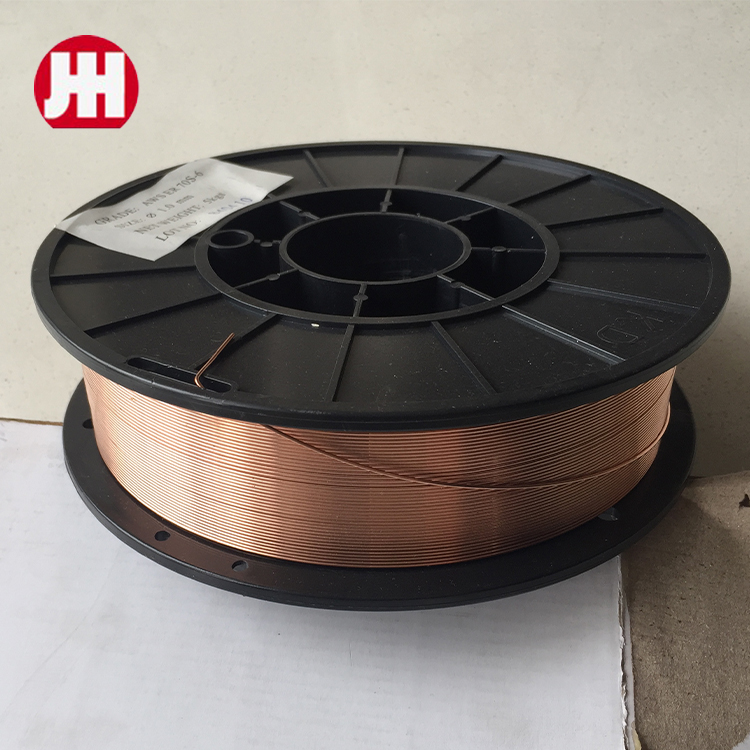mig welding electrode manufacturer
Understanding MIG Welding Electrodes A Comprehensive Guide for Manufacturers
Metal Inert Gas (MIG) welding is one of the most widely used processes in the welding industry, renowned for its efficiency and versatility. At the heart of this process is the MIG welding electrode, an essential component that can significantly impact the quality of the weld. In this article, we will explore the importance of MIG welding electrodes, the different types available, and what manufacturers should consider when choosing the right electrodes for specific applications.
What Are MIG Welding Electrodes?
MIG welding electrodes are filler wires that are fed continuously through a welding gun while an inert gas—usually argon or a mix of argon and carbon dioxide—protects the weld pool from atmospheric contamination. These electrodes come in various diameters and compositions, allowing for customization based on the material being welded and the desired mechanical properties of the weld.
Types of MIG Welding Electrodes
MIG welding electrodes can be classified based on their composition and application
1. Solid Steel Electrodes Commonly used for welding low to medium carbon steels, these electrodes provide strong, clean welds. They are often used in structural applications.
2. Flux-Cored Electrodes These electrodes contain a core of flux that helps stabilize the arc and protect the weld pool from oxidation. They can be used in both gas-shielded and non-gas-shielded processes, making them suitable for outdoor use in windy conditions.
3. Stainless Steel Electrodes Designed for welding stainless steel, these electrodes offer corrosion resistance and are ideal for industries such as food processing, chemical, and pharmaceutical manufacturing.
mig welding electrode manufacturer

Choosing the Right Electrode
For manufacturers, selecting the appropriate MIG welding electrode is crucial for achieving optimal welding results. Here are some key factors to consider
- Material Compatibility Ensure that the electrode composition matches the base materials to be welded. This compatibility helps achieve desired mechanical properties and reduces the chances of defects.
- Welding Position The electrode diameter and type may vary based on whether the welding is performed in a flat, horizontal, vertical, or overhead position. Different positions can influence weld bead shape and penetration depth.
- Weld Quality The smoothness of the bead and the absence of defects such as porosity or undercuts can often be traced back to the right choice of electrode. Manufacturers should invest in high-quality electrodes to ensure superior welds.
- Welding Environment Factors such as temperature, humidity, and exposure to elements can affect welding performance. For outdoor applications, flux-cored electrodes are often preferred due to their resistance to wind.
Conclusion
The choice of MIG welding electrode is not merely a technical detail; it is a fundamental aspect that can determine the success of welding projects in any manufacturing environment. By understanding the types of electrodes available and the specific requirements of their applications, manufacturers can enhance the quality and durability of their welds. Investing in quality electrodes tailored to their specific needs is essential for achieving efficiency, reliability, and excellence in welding performance. As the welding industry continues to evolve, staying informed about advancements in electrode technology will be crucial for manufacturers aiming to maintain a competitive edge.
-
Best MIG Welding No Gas Flux Core Solution – Easy, Portable & Clean WeldingNewsJul.08,2025
-
7018 Welding Rod 3/16 - High Strength, Low Hydrogen Electrodes Wholesale 3/32 Welding Rod 7018 Suppliers & China 7018 AC Welding Rod FactoryNewsJul.08,2025
-
High Quality MIG Aluminium Welding Wire - Wholesale Factory Prices from China SuppliersNewsJul.07,2025
-
High-Quality Gasless Aluminum Welding Wire China Gasless Aluminum MIG Wire SupplierNewsJul.07,2025
-
High Quality Ordinary Welding Rod for Pipes – Reliable China Welding Rod 7016 SupplierNewsJul.06,2025
-
Welding Wire 0.9 mm ER70S-6 Supplier Wholesale Manufacturers & FactoriesNewsJul.06,2025


